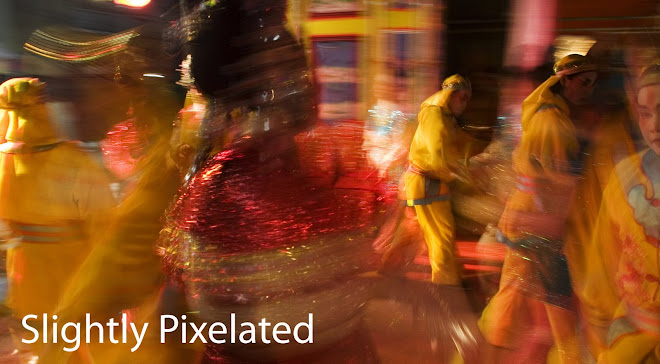On a Thursday night in Jakarta two men watched day slide into night.
One slept fitfully in his hotel room, if he slept at all. I do not know his name and have not seen his face.
For this man, a devout Muslim I imagine, the darkness was heavy with foreboding. His night echoed with feverish prayers, with accumulated regrets, with the natural fear of his imminent death.
For the other, Evert Mokodompis his name, the night was beautiful.
Sleep came upon him gently, reassuringly. As he drifted from consciousness he was abuzz with plans, his mind's eye crammed with images of his newborn child, not yet a day old.
The fates of these two men, unknown to each other, sharing the same night, the same air, in the same city, were entwined.
One man, the Suicide Bomber, whose head was blown clean away, goaded his body through those sleepless hours, commanding his reluctant limbs to follow plans he had learned by rote, plodding methodically, perhaps joyfully, towards his macabre finale.
The other, Evert, arrived at work the next morning distracted and happy; enveloped by the love he felt for his child and its mother. The promise of the future stretched out invitingly before him.
The bomb erased six lives that Friday morning with Evert and the faceless, nameless, Suicide Bomber among them.
Their blood spilled, spilled ink, illuminated screens, opened a channel, momentarily, into the public's consciousness - that vast amorphous place where so many seek to exist.
It was through not existing, then, through their destruction, their definitive violent erasure that Evert and the Suicide Bomber engraved themselves in my mind, prompting me to write about two men of whom the only details I know relate to their interconnected destinies and the tragic waste of their lives.
As I imagine Indonesian officials picking through the debris in which Evert and the Suicide Bomber lay, amidst dust, tangled metal and the awful stains of bodies slaughtered, I am assailed by words: terror, collateral damage, hatred, extremism and cowardice. The words rush at me as if eager to take a front seat in my understanding of this now commonplace event.
It's tempting to let the habitual reactions take their habitual seats. I want to resist that though and imagine some more.
Who was the faceless, nameless being who stumbled out of obscurity to punch a hole in the morning calm?
A warrior in the war of terror that we have come to accept as a reality? A terrorist, to give him the label his actions have naturally earned him?
But what kind of warrior does not confront his enemies, does not take aim or look his victims in the eye? And what kind of terror can this be when a bomb explodes at breakfast time in a fancy hotel?
We, the public, the presumed target of the bombs, can neither see our attackers nor can we know where they will strike. We can neither retaliate nor can we find focus for our terror.
Disparate hatred is what might rise from the debris. President Bush would have had it so. Indeed hatred was doubtless the fatal infection our Suicide Bomber hoped to pass on.
The dust barely settled, however, the victims barely interred and we have moved on, scurrying forwards purposefully, inevitably forgetting the terror that should be our lot. The gift intended for us.
Evert's child will not remember this event. He will be told what happened when he is old enough to understand. His mother will foster sorrow and hatred perhaps, but Evert's child will struggle to imagine the moment his father was taken. Perhaps one day, out of despair at his sorry life (if sorry it becomes), he too will become a Suicide Bomber; what tragic irony that would be.
I try to grasp the courage of the suicide bomber; his daring. But I can't help but see desperation, an ocean of desperation. Or was it cowardice to avoid confrontation, to deny his prey the right to defend themselves? Was it cowardice, even, to choose such an easy, instant death? Call it touch-of-a-button terrorism. Instant annihilation for an instant age.
In his moment of madness, his climactic gesture of passion, faith, frustration, hatred what does the suicide bomber hope to create?
There is twisted victory in such loss: the promise of martyrdom and release from a life defined, perhaps, by poverty and want. And in his wake the Suicide Bomber does sow seeds of fear, leaves behind scarred memories, breeds grief and decimates hope.
Except we know that while you can kill and kill again, butchering flesh and blood, there is an intangible, indefatigable force, call it the human spirit, that fills the void and refuses to die.
When one considers the collective force of our capacity for love, determination and hope, one can only feel sorry for the Suicide Bomber who yielded his life and sold his spirit in an attempt to defeat what cannot be defeated.

No comments:
Post a Comment